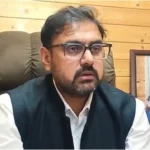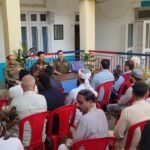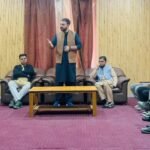Prime Minister Narendra Modi is set to deliver his 12th consecutive Independence Day address to the nation on Friday, marking a significant milestone just months after Operation Sindoor and amid opposition parties rallying against alleged poll irregularities to challenge his government.
While Modi is likely to highlight India’s firm stance on national security, economic growth, and his expanding welfare initiatives, he may also touch upon the economic and foreign policy uncertainties arising from US President Donald Trump’s confrontational approach to India on trade.
Prime Minister Modi has consistently stressed making India “aatmanirbhar” by strengthening indigenous expertise and local manufacturing, aiming to build a “Viksit Bharat” by 2047. His upcoming speech on the nation’s 79th Independence Day is expected to reflect this vision.
Having recently surpassed Indira Gandhi’s record for consecutive tenure as prime minister, Modi, with his 12th consecutive Independence Day address, will move ahead of her 11 successive Red Fort speeches, positioning him just behind Jawaharlal Nehru in terms of consecutive addresses from the historic ramparts.
Indira Gandhi served as prime minister from January 1966 to March 1977, and again from January 1980 until her assassination in October 1984, delivering a total of 16 Independence Day addresses. Modi’s speeches on August 15 typically focus on pressing national issues and the country’s growth under his leadership, often including announcements of policy initiatives or new schemes.
In his 98-minute address on August 15, 2024, he called for a “secular” civil code to replace the existing framework, which he described as “communal” and discriminatory, and also advocated for simultaneous elections. He announced plans to create 75,000 additional medical seats over the next five years.
Social issues such as crimes against women, cleanliness drives, and the empowerment of women and marginalized communities have frequently featured in his addresses, alongside his broader push for national development and reform.
Political observers will closely watch for any hints from the Prime Minister on foreign policy, especially as India’s traditionally strong ties with the US face pressure amid Trump’s repeated claims of mediating a ceasefire between India and Pakistan, and his use of tariffs to influence trade.
Trump’s decision to impose a 50 per cent tariff on India, along with his occasional praise of Pakistan and ceasefire assertions, has provided the opposition with material to criticize the Modi government.
With Parliament’s Monsoon session ongoing and frequently disrupted by opposition parties raising concerns over alleged poll irregularities and demanding a debate on the Special Intensive Revision of electoral rolls in poll-bound Bihar, it will be closely observed whether the Prime Minister addresses these issues.
Modi’s firm stance against Pakistan-sponsored terrorism and naxalism has been a consistent feature in his annual Independence Day speeches, and this year is expected to follow the same pattern.
The Prime Minister had invited suggestions from citizens for his address, and it will be interesting to see if any of these ideas are incorporated into his speech. (Agencies)









